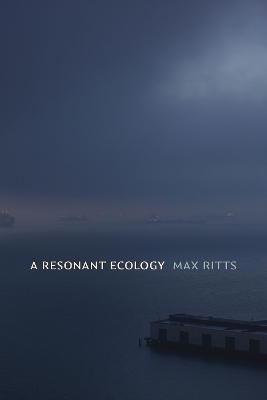
A Resonant Ecology
Seiten
2024
Duke University Press (Verlag)
978-1-4780-2664-8 (ISBN)
Duke University Press (Verlag)
978-1-4780-2664-8 (ISBN)
Max Ritts traces how sound’s integration into environmental politics Canada’s North Coast have paved the way for massive industrial expansion.
In A Resonant Ecology, Max Ritts traces how sound’s integration into the environmental politics of Canada’s North Coast has paved the way for massive industrial expansion. While conservationists hope that the dissemination of whale songs and other nature sounds will showcase the beauty of local wildlife for people around the world, Ritts reveals how colonial capitalism can co-opt sonic efforts to protect the coast. He demonstrates how digital technologies allow industry to sonically map new shipping lanes and facilitate new ways of experiencing sound—premised not on listening, but on sound’s exploitable status as a data resource. By outlining how sound can both perpetuate and refuse capitalist colonialism, Ritts challenges the idea that the sonic realm is inherently liberatory and reveals sound to be a powerfully uncertain object. Through a situated geographical approach, he makes the case that only a decolonial and multigenerational environmental politics can counter the false promise of “sustainable marine development” held up by industry and the state.
In A Resonant Ecology, Max Ritts traces how sound’s integration into the environmental politics of Canada’s North Coast has paved the way for massive industrial expansion. While conservationists hope that the dissemination of whale songs and other nature sounds will showcase the beauty of local wildlife for people around the world, Ritts reveals how colonial capitalism can co-opt sonic efforts to protect the coast. He demonstrates how digital technologies allow industry to sonically map new shipping lanes and facilitate new ways of experiencing sound—premised not on listening, but on sound’s exploitable status as a data resource. By outlining how sound can both perpetuate and refuse capitalist colonialism, Ritts challenges the idea that the sonic realm is inherently liberatory and reveals sound to be a powerfully uncertain object. Through a situated geographical approach, he makes the case that only a decolonial and multigenerational environmental politics can counter the false promise of “sustainable marine development” held up by industry and the state.
Max Ritts is Assistant Professor of Geography at Clark University.
Acknowledgments ix
Introduction: On a Resonant North Coast 1
1. At Cetacea Lab: Whale Song and Conservation’s “Late Style” 23
2. Value in Injury: The Work of Science in Ocean Noise Regulation 43
3. “Port Noise”: Sense of Place and State Space in Dodge Cove 65
4. Ancestral War Hymns: Opacity and Indigeneity in Gyibaaw 87
5. Smartest Coast in the World? Digital Sound and Enclosure 107
Conclusion: A Country that Belongs in No Country 125
Notes 133
Bibliography 161
Index 191
| Erscheinungsdatum | 16.08.2024 |
|---|---|
| Reihe/Serie | Sign, Storage, Transmission |
| Zusatzinfo | 7 illustrations |
| Verlagsort | North Carolina |
| Sprache | englisch |
| Maße | 152 x 229 mm |
| Gewicht | 454 g |
| Themenwelt | Naturwissenschaften ► Biologie ► Ökologie / Naturschutz |
| Naturwissenschaften ► Geowissenschaften ► Geografie / Kartografie | |
| Naturwissenschaften ► Physik / Astronomie ► Mechanik | |
| Technik ► Umwelttechnik / Biotechnologie | |
| ISBN-10 | 1-4780-2664-2 / 1478026642 |
| ISBN-13 | 978-1-4780-2664-8 / 9781478026648 |
| Zustand | Neuware |
| Haben Sie eine Frage zum Produkt? |
Mehr entdecken
aus dem Bereich
aus dem Bereich


